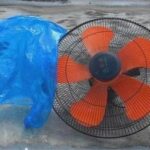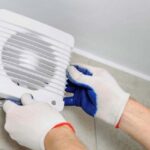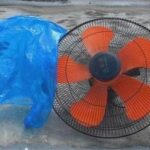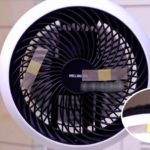Here are 3 common mistakes people make when using fans:
1. Using the fan for extended periods
Fans are designed to cool, regulate air, and create a well-ventilated room. However, running the fan non-stop for an entire day can cause the motor to overheat, making you feel hotter. In the worst-case scenario, it could even lead to a motor fire.
Therefore, it is advisable to turn off the fan after 4-5 hours of usage and give it a 30-minute break. Avoid continuous operation to prolong the appliance’s lifespan.
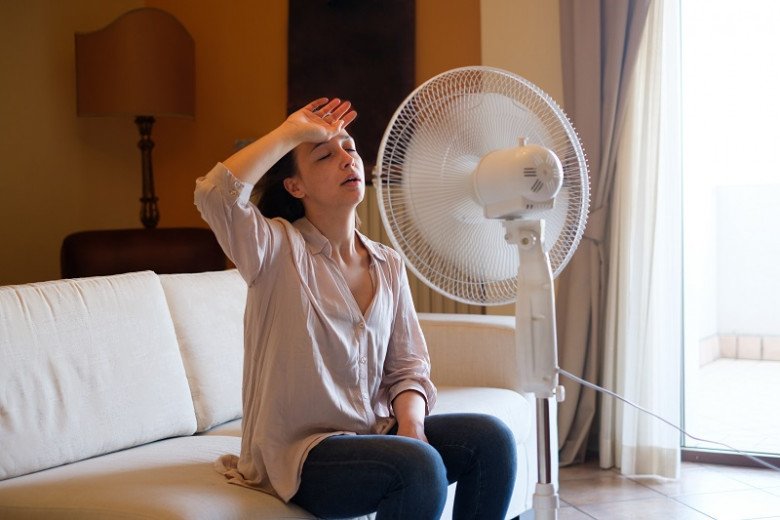
2. Neglecting to clean the fan
Over time, electric fans accumulate dust and dirt. If not cleaned regularly, they will fail to provide fresh and cool air, and instead, circulate bacteria and dust, posing health risks, especially for those with respiratory issues.
Lack of maintenance can also shorten the fan’s lifespan. Thus, it is essential to clean the fan by disassembling the grill and blades for thorough scrubbing. Alternatively, you can try a trick to clean the fan without disassembling it.
Mix a cleaning agent, fabric softener, or white vinegar with water in a spray bottle. Spray this solution onto the fan grill and blades. Cover the grill with a plastic bag, and turn on the fan. The spinning blades will create a wind that blows the cleaning solution everywhere, taking the dust with it.

3. Incorrect fan placement
When installing ceiling or wall-mounted fans, avoid these three locations based on Feng Shui principles:
– Overhead: Avoid placing a ceiling fan directly over a sofa or bed, as it creates an “overhead clash,” causing discomfort and stress to the person below.
– Too low: Wall-mounted fans should be installed at a certain height. Placing them too low can induce headaches and neurological issues. If your ceiling is too low, opt for a standing fan instead.
– White Tiger position: From the perspective of the main entrance, the right side is the White Tiger (inauspicious), and the left is the Green Dragon (auspicious). The White Tiger position is believed to be “static” and not suitable for installing electric fans.
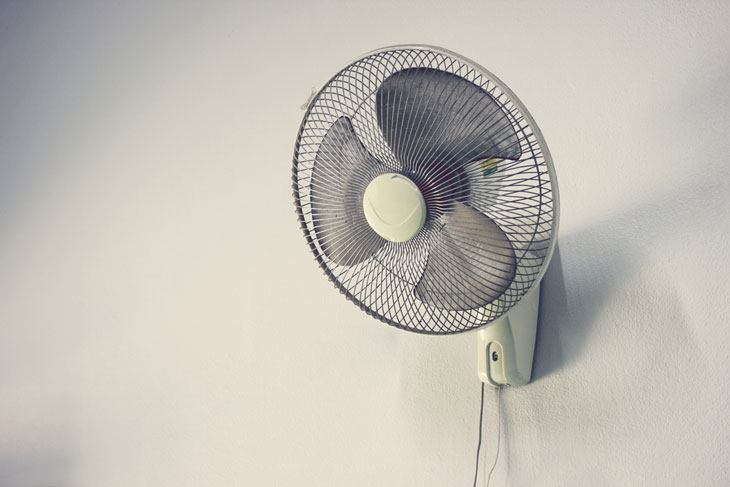
Additionally, to maintain good health, avoid the following when using electric fans:
– Refrain from setting the fan to the highest speed, as it can lower your skin temperature and block pores, making you feel hotter and leading to fatigue.
– Do not use the fan when sweating profusely, as the sudden gust of wind can cause your sweat glands to shut down, posing a health risk. Instead, use a towel to wipe off the sweat, and then turn on the fan from a distance to cool down gradually.
– Avoid directing the fan towards your face or head, as it can cause a cold, flu, or headache.
The Magic of DIY: Clean Your Fan with a Plastic Bag and White Vinegar
When it comes to fan maintenance, many are hesitant to dismantle the frame, believing it to be a complicated task. However, with the right skills and knowledge, this process can be straightforward and efficient. In the capable hands of an experienced technician, the intricate details of fan maintenance can be effortlessly navigated, ensuring a smooth and seamless experience.
“House Fires: The Surprising Danger of Indoor Fans and How to Prevent Them”
It is imperative to be aware of the potential fire hazards associated with range hoods and exhaust fans. These appliances, if not properly maintained and cleaned, can pose a serious risk to your home. Experts emphasize the importance of regular cleaning and maintenance to prevent any potential disasters.


























